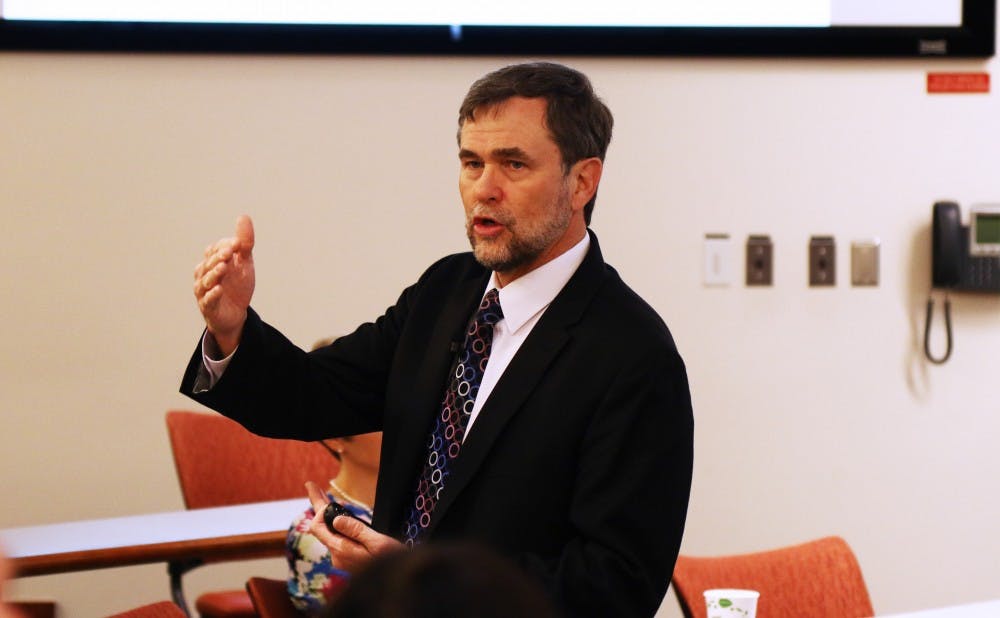Steven Radelet, director of the human development program at Georgetown University and former chief economist at the United States Agency for International Development, spoke about rising living standards in the developing world in a talk Thursday.
The discussion—sponsored by the Duke Center for International Development—focused on quantifying and exploring the progress that developing countries have made. Through extensive data compiled from various databases, Radelet argued that the living standards of people in the developing world have improved in recent years.
“In the last 25 years there has been more progress among the global poor than at any other time in history,” Radelet said. “In almost any dimension of development—poverty, income, education, health and democracy— there has been more progress in the last couple of decades than ever before.”
The result is that there has been an overall decrease in the rate of global poverty, and people in developing countries are living longer and better lives, Radelet said. His data noted that, for the first time in history, there are more people globally living on $5 or more a day than on $1.90 a day.
Despite this progress, Radelet said that the public has not recognized these strides.
“What is astonishing is how few people know about this progress,” Radelet said. “Very few people know about it in its entirety. Some people know about it in one dimension, but not others.”
Sixty-six percent of Americans erroneously believe that progress in developing countries is decreasing, Radelet said, noting that he attributes this misconception to news coverage that is focused on the negative aspects of developing countries.
“We hear in the newspaper everyday about how terrible everything is,” Radelet said. “We never hear the good news.”
Radelet noted that the mortality rate for children younger than five has decreased in every single developing country in the world.
“This is one of the greatest achievements in world history and nobody knows about it,” Radelet said. “This is a story about vaccines, it is a story about knowledge, germ theory, girls getting education and foreign aid.”
Although this progress is historic, Radelet believes that it will only continue with sustained collaborative efforts. Without this attention, the progress may stall or stop completely, he said.
“None of these three futures are etched in stone,” Radelet said. “It is a matter of what we do individually, what the United States does, what the international leaders do and what people in the developing world do.”
Get The Chronicle straight to your inbox
Signup for our weekly newsletter. Cancel at any time.

